Expert Pest Control Strategies in Mahwah, NJ
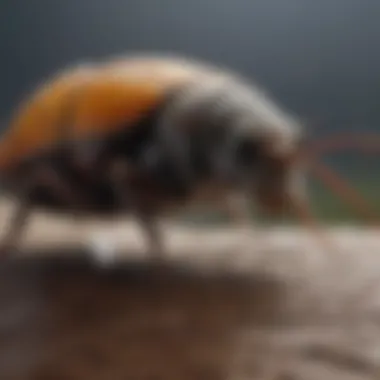
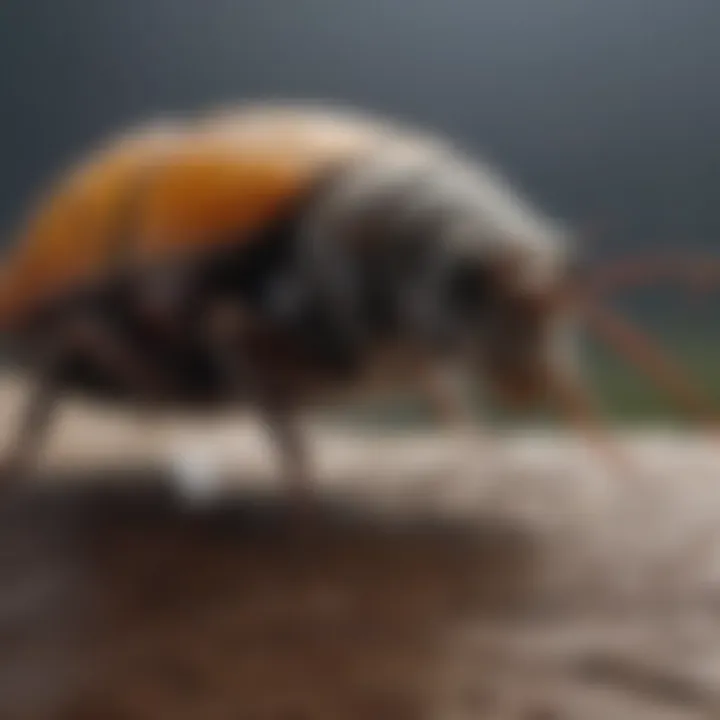
Intro
Pest control is a significant aspect of maintaining a healthy environment in Mahwah, NJ. Homeowners and businesses experience a range of challenges when dealing with pests. Understanding these challenges can help in making informed decisions regarding pest management. This article will delve into various facets of pest control including pest identification, prevention techniques, eco-friendly solutions, and the need for professional services. The landscape of pest control is complex, and awareness of local pest species paired with effective strategies can lead to a sustainable resolution of pest issues.
Understanding Pests
Definition of Pests
Pests are organisms that disrupt our daily activities and adversely affect the quality of life. They can include insects like ants and termites, rodents like mice and rats, and other unwanted creatures. While they play a role in the ecosystem, their presence tends to create problems for humans and structures. Understanding the specific pests common in Mahwah, such as the eastern subterranean termite or the common house mouse, is essential for effective treatment.
Importance of Pest Identification
Identifying the pest is the first and most crucial step in effective pest control. Accurate identification helps determine the best treatment methods available. Different pests require different strategies. For instance, the approach to deal with bed bugs will be entirely different from that of dealing with cockroaches. Additionally, misidentification can lead to ineffective control measures, wasting time and money.
"Effective pest control starts with proper identification. Knowing which pest you are dealing with can save resources and lead to successful management."
Prevention Techniques
Home and Garden Preventative Measures
Preventing pests from entering homes or gardens is vital. Simple yet effective steps include sealing cracks and crevices, keeping food stored securely, and maintaining cleanliness in both indoor and outdoor spaces. Raking leaves and removing debris can deter various pests in the backyard. It's also wise to inspect plants for pests before bringing them indoors.
Seasonal Prevention Tips
Adapting pest management strategies according to the seasons is key. For example:
- Spring: Check for signs of termites and apply preventive treatments.
- Summer: Maintain good hygiene and check for mosquitoes, particularly in areas with standing water.
- Fall: Seal exterior entry points as pests look for warmth.
- Winter: Inspect for signs of rodents seeking shelter from the cold.
Eco-Friendly Pest Control Solutions
Overview of Sustainable Practices
The use of eco-friendly pest control methods is gaining popularity. Homeowners are now more inclined to choose sustainable practices that minimize harm to their surrounding environment. This might include integrating beneficial insects into gardens or using traps rather than chemicals.
Natural Remedies and Their Effectiveness
Many natural remedies can be effective in pest management. For example, diatomaceous earth can deter crawling insects, while essential oils like peppermint can repel spiders and ants. While these methods may not work for severe infestations, they can provide a solid foundation for ongoing pest control efforts.
By embracing these practices, residents of Mahwah can maintain a healthier ecosystem while still addressing pest issues. Understanding the local pest landscape, employing prevention techniques, and utilizing eco-friendly solutions is crucial for effective pest management. This not only protects homes but also contributes to a more sustainable environment.
Prelims to Pest Control in Mahwah, NJ
Pest control is a critical aspect of maintaining a healthy and safe living environment in Mahwah, NJ. Understanding the unique pest challenges in this region is essential for homeowners. Proper pest management not only helps to protect property but also ensures the well-being of residents.
Mahwah’s suburban setting, coupled with its proximity to natural areas, creates an ideal habitat for various pests. Ants, rodents, and termites are notable nuisances that require effective management strategies. Homeowners must prioritize pest control to prevent infestations that can lead to significant damage and health concerns.
The importance of pest control in Mahwah goes beyond mere convenience. It directly impacts the quality of daily life. A well-managed pest prevention strategy minimizes stress and enhances the comfort of home environments. Moreover, addressing pest issues promptly can lead to cost savings in the long run. Ignoring early signs of pest activity often results in more extensive and expensive treatments later.
In this article, we will explore various aspects of pest control specific to Mahwah, NJ. Fromidentifying common local pests to evaluating eco-friendly solutions, this comprehensive overview aims to equip homeowners with the knowledge and tools needed for effective pest management.
Effective pest control is not a one-time task but a continuous process of prevention and monitoring.
By adopting a proactive approach, residents can maintain their homes free from unwanted pests. In the following sections, we will delve into the types of pests commonly found in Mahwah, seasonal infestations, and essential preventative measures that homeowners can implement.
Understanding Local Pest Species
Understanding local pest species is essential for effective pest management in Mahwah, NJ. Each region exhibits unique ecological characteristics that influence the types of pests likely to invade homes and businesses. Knowing these local species provides critical insights for proactive and responsive pest control strategies. Homeowners can protect their properties more effectively by grasping pest behavior, habits, and the potential damage they may cause.
Common Pests in Mahwah
Ants
Ants are ubiquitous in Mahwah, with species like the pavement ant and carpenter ant being particularly common. Their ability to form large colonies makes them a recognizable nuisance. Ants will often invade homes in search of food, especially during warmer months. One key characteristic of ants is their organized behavior, allowing them to efficiently forage and transport food. Their presence often indicates a nearby source of food, which homeowners may need to address. While they are generally not harmful, carpenter ants can cause structural damage if left unchecked.
Termites
Termites pose a significant threat to homes in Mahwah due to their ability to consume wood. The Eastern Subterranean termite is most prevalent in the area, and it can infest homes without early detection. Termites are unique because they operate in colonies that can number in the millions. Their wood-destroying capability is damaging, leading to costly repairs. Homeowners should regularly inspect their properties for signs of termite damage, as early intervention is crucial for effective treatment.
Rodents
Rodents, such as Norway rats and house mice, are an ongoing issue for many residents in Mahwah. These pests tend to seek shelter in homes, particularly during colder months. Their ability to reproduce quickly makes them a formidable problem. Rodents are known carriers of diseases, which adds to their threat. Homeowners need to address signs of rodent activity immediately. Utilizing traps and sealing entry points is vital in managing their populations effectively.


Bed Bugs
Bed bugs have become increasingly problematic in Mahwah, primarily in residential and hospitality settings. These pests thrive in environments where humans are present and feed on blood. One primary aspect of bed bugs is their ability to hide in small crevices, making detection challenging. Although bed bugs do not transmit diseases, their bites can cause discomfort and stress. Early detection, combined with professional pest control methods, is essential for resolving infestations efficiently.
Seasonal Pest Infestations
Spring Invaders
As temperatures rise, spring invaders, such as ants and termites, emerge from their dormant state. This seasonal pattern indicates a need for vigilant monitoring. Homeowners may notice increased ant activity as these pests search for food. Additionally, termite swarming often begins in the spring, marking their reproductive phase. Recognizing these patterns enables homeowners to implement preventive measures effectively.
Summer Swarms
Summer is a peak season for various pests, particularly flying insects like wasps and mosquitoes. Summer swarms pose risks for outdoor gatherings and can affect property enjoyment. Understanding that many pests breed during this time helps homeowners prepare. Proper waste management and eliminating standing water are key strategies to reduce attractants.
Fall Preparations
As temperatures drop, pests begin searching for warmth and shelter indoors. Common behaviors include rodents seeking nesting sites and ants returning to their colonies. Homeowners should prepare their homes by sealing entry points and removing clutter, which can provide hiding spots. Preparation in the fall can significantly reduce winter infestations.
Winter Survivors
Despite the cold, several pests manage to survive in Mahwah. Rodents and certain insects, like cockroaches, can thrive indoors during winter months. Their survival strategies focus on finding food and warmth. Homeowners must be proactive during this time, maintaining cleanliness and addressing potential entry points to mitigate infestations.
Preventing and managing pests requires understanding specific local species and their seasonal behaviors. By recognizing these elements, residents can better protect their homes and maintain a pest-free environment.
The Importance of Preventative Measures
Preventative measures in pest control are crucial for maintaining a safe and healthy environment in Mahwah, NJ. They serve not only to manage existing pest issues but also to minimize the risk of future infestations. Homeowners and business operators often overlook these essential strategies. However, taking proactive steps can lead to long-term benefits, including cost savings and a reduced need for chemical treatments. Preventing pests before they become a problem contributes to sustainable living and environmental stewardship.
Home Maintenance Strategies
Sealing Entry Points
Sealing entry points is an essential strategy in pest prevention. This involves identifying and closing small gaps or openings where pests can enter the home. Key features of this method include the use of caulk, weather stripping, and screens on windows or vents. It is a popular choice as it directly reduces the access that pests have to the interior spaces.
One unique aspect of sealing entry points is that it also improves energy efficiency. Properly sealed homes can maintain temperature better, resulting in lower heating and cooling costs. The disadvantage, however, is that it requires diligence and regular inspection to ensure that all potential entry points remain sealed.
Landscaping Considerations
Landscaping considerations go hand in hand with pest prevention. This strategy focuses on how outdoor spaces can be designed to deter pests naturally. Key characteristics include choosing specific plants, maintaining healthy vegetation, and keeping plants well-trimmed. This prevents overgrowth that can harbor pests.
Using the right types of plants can significantly reduce pest populations. Native plants, for example, often have natural defenses against pests. However, a disadvantage is that landscaping requires thoughtful planning and regular maintenance, which can be time-consuming for busy homeowners.
Proper Waste Management
Proper waste management plays a crucial role in pest prevention. This strategy emphasizes the importance of managing garbage and waste materials responsibly. Key features include using sealed bins, regular trash disposal, and composting waste correctly. Good waste management prevents attracting pests like rodents and insects, which are drawn to food sources.
Utilizing appropriate waste management techniques is beneficial, as it promotes cleanliness and hygiene within and around the property. One disadvantage is that it requires discipline and routine, which some homeowners may overlook, leading to unintended pest problems.
Garden Pest Prevention
Choosing Resistant Plants
Choosing resistant plants is another effective strategy in the realm of pest prevention. This involves selecting plants that have traits making them less vulnerable to pests and diseases. A key feature is the selection of varieties known to thrive in Mahwah’s environment with less pest interference.
Resistant plants can significantly reduce the need for chemical treatments, making them a commendable choice. The downside is that sometimes these varieties may be harder to find or come with higher initial costs compared to regular plants.
Companion Planting
Companion planting entails growing different plants in proximity for mutual benefits. This approach is rooted in the interaction between plants that can repel pests or attract beneficial insects. A vital characteristic of this method is its natural pest control approach without the need for pesticides.
Companion planting is beneficial because it fosters a biodiverse garden, improving overall health and resilience. However, it does require knowledge of plant combinations that work well together, posing a challenge for novice gardeners.
Organic Mulching
Organic mulching is another practical strategy for protecting gardens from pests. This involves applying organic materials such as straw, wood chips, or leaves to the soil surface. A key feature of organic mulching is that it helps retain moisture, regulate soil temperature, and suppress weed growth, which can act as habitats for pests.
The advantages of organic mulching include improving soil health and promoting beneficial organisms. Conversely, a downside is that some organic mulches can harbor pests if not managed properly, indicating a need for vigilance in maintenance.
Evaluating Eco-Friendly Pest Control Solutions
The concept of eco-friendly pest control has gained significance in recent years, especially for residents of Mahwah, NJ. Homeowners are increasingly conscious of the chemicals they use. Evaluating solutions that are safe for both the environment and human health is crucial. Eco-friendly methods minimize the risks associated with traditional pesticides, which can contaminate soil and water sources. They offer effective alternatives while promoting biodiversity. Natural strategies not only combat pests but also protect beneficial species, enhancing the overall ecosystem.
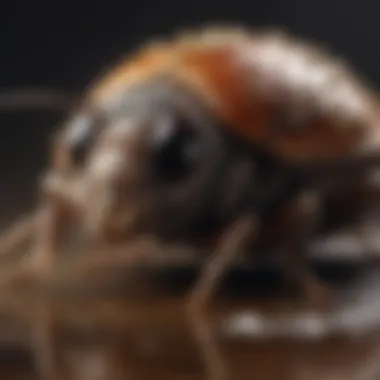
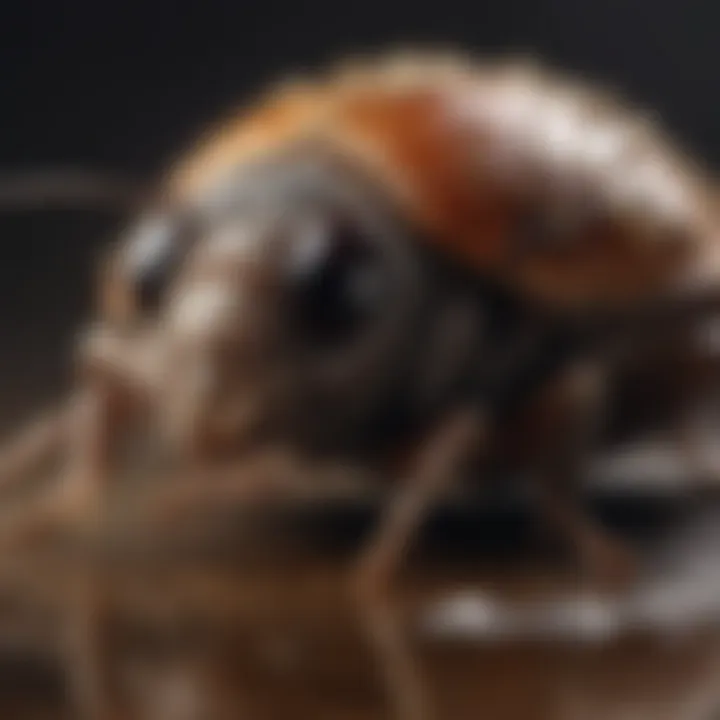
Biological Control Methods
Biological control methods utilize living organisms to manage pest populations. These approaches rely on natural predators or parasites, reducing reliance on synthetic chemicals. The goal is to establish a balanced environment where pests are kept in check without harming non-target organisms.
Natural Predators
Natural predators are species that prey on pests. For example, ladybugs consume aphids, a common garden pest. This interaction is a hallmark of ecological balance. The key characteristic of natural predators is their role in the food chain and their ability to control pest populations naturally. Utilizing natural predators is beneficial for sustainable pest management.
Their unique feature lies in their self-sustaining nature; once established, they can continue to provide pest control without ongoing human intervention. However, the potential disadvantage may include their availability and the time it takes to establish a population.
Beneficial Insects
Beneficial insects include species like lacewings and parasitic wasps. These insects help control pest populations effectively. They are often seen as a popular choice among gardeners due to their effectiveness and environmentally friendly nature. Their key characteristic is their specific targeting of pests without harming other fauna.
A distinctive advantage of beneficial insects is that they provide ongoing pest control as part of a balanced ecosystem. The downside can be the difficulty in introducing them into an area where they are not naturally found, which may take some time to see results.
Nematodes
Nematodes are microscopic roundworms that can target various pests in the soil. They contribute to pest management by infecting and killing harmful insects, especially larvae. Their key characteristic is their ability to penetrate the protective layers of many pests, which makes them effective.
Nematodes are a beneficial solution for organic gardening efforts. The unique feature of nematodes is their mode of action; they serve as both a biological control agent and improve soil health. However, one disadvantage is that they require specific soil conditions to thrive and may not be effective in every environment.
Botanical Pesticides
Botanical pesticides are derived from plants and are often used in organic pest management practices. These substances can provide an effective means to deter or kill pests while posing less risk to humans and the environment.
Neem Oil
Neem oil is extracted from the seeds of the neem tree. It disrupts the life cycle of many pests, making it a popular choice among gardeners. Its key characteristic is its ability to act as an insect growth regulator, which prevents larvae from maturing into adults.
The unique feature of neem oil is its multi-target approach. It can repel pests while also addressing existing infestations. However, it requires careful application, as it can affect beneficial insects as well if not used properly.
Diatomaceous Earth
Diatomaceous earth consists of fossilized algae. It works by causing dehydration in pests, particularly insects with exoskeletons, like ants and cockroaches. Its key characteristic is its mechanical mode of action, rather than chemical toxicity.
Diatomaceous earth is affordable and easy to apply, making it a popular choice. The unique feature is that it does not adversely affect wildlife. The downside is that it can be less effective in damp conditions and might require repeated applications.
Essential Oils
Essential oils serve as a natural repellent against various pests. Oils like peppermint, tea tree, and lavender have proven effective in deterring insects. Their key characteristic is the potent aroma that frustrates target pests.
Essential oils provide a versatile solution for pest management in homes. They can be used in sprays or diffusers, allowing flexibility. Nevertheless, the main downside is that they often have to be reapplied frequently for continued effectiveness.
Professional Pest Management Strategies
Professional pest management is crucial in effectively combating pest issues in Mahwah, NJ. The strategies provided by these experts help maintain a safe and healthy environment for homes and businesses. By harnessing their knowledge and the latest methods, pest control professionals can address infestations in a conscientious manner, promoting long-term solutions that minimize harm to non-target species and the environment.
Choosing a Pest Control Provider
Choosing the right provider is a fundamental step in ensuring effective pest management. It contributes significantly to the overall success of pest control efforts.
Licensing and Certifications
Licensing and certifications validate a provider's competency and adherence to industry standards. They ensure that the provider is equipped with the necessary knowledge of pest management and environmental laws. In Mahwah, licensed professionals must comply with state regulations, reinforcing credibility. A key characteristic of these certifications is their role in establishing trust with clients.
The unique feature of licensed pest control services is their obligation to undergo continued education. This keeps them updated on the latest pest control methods and regulations. Choosing a licensed provider means opting for safer methods and compliant practices that prioritize health and safety, which is advantageous for the homeowner.
Experience and Reputation
Experience and reputation play a vital role in selecting a pest control provider. A company’s history in the field often reflects its reliability and effectiveness. Providers with a solid reputation generally have a proven record of successful pest management outcomes.
The unique feature of experienced providers is their comprehensive knowledge of local pest species and infestations. They can customize strategies to address specific problems, making them a beneficial choice. Additionally, their established reputation among prior clients can signal their quality of service. However, it's essential to research and ensure the experience aligns with your specific pest control needs.
Client Testimonials
Client testimonials offer valuable insights into a pest control provider's effectiveness and service quality. They reflect the experiences of previous customers and can greatly inform potential clients. A key characteristic of testimonials is their ability to provide real-world perspectives on service outcomes.
Unique features of testimonials often highlight a company’s strengths or areas of expertise. They can also reveal common challenges faced by clients and how the provider addressed them. This information can help prospective clients gauge the provider’s ability to meet specific needs and expectations, thus enhancing decision-making for pest control solutions.
Integrated Pest Management (IPM)
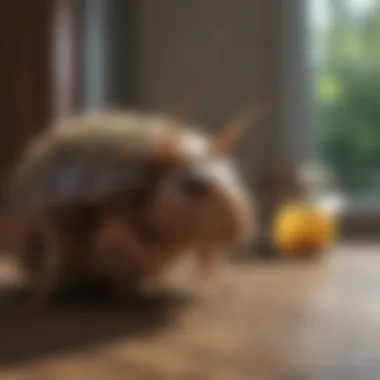
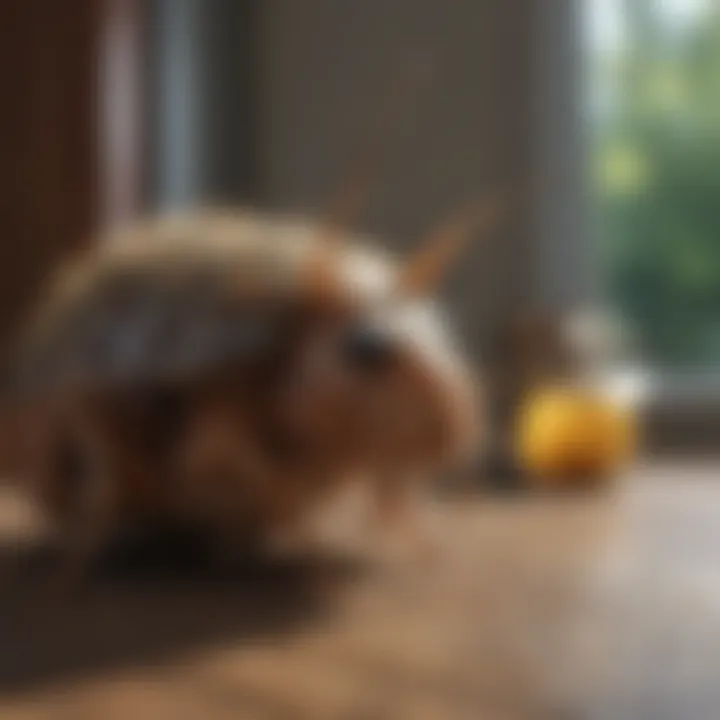
Integrated Pest Management (IPM) is an effective, environmentally sensitive approach to pest control. It combines multiple strategies to prevent and manage pest populations sustainably. Understanding IPM principles is essential, as they focus on long-term prevention and reduction of pest problems.
Understanding IPM Principles
IPM emphasizes the use of a variety of management strategies to control pests, considering their life cycles and habits. By utilizing multiple approaches, IPM minimizes reliance on chemical treatments, prioritizing methods that are safer for humans, pets, and the environment. This multifaceted approach proves beneficial in reducing pest populations effectively and sustainably.
The unique feature of IPM principles includes their focus on prevention through monitoring and identifying pest populations early. This proactive strategy is advantageous, as it allows for targeted interventions that can save time and reduce costs for homeowners.
Monitoring and Evaluation
Monitoring and evaluation are critical components of IPM strategies. Continuous assessment allows for timely identification of pest threats and effectiveness of applied strategies. Monitoring provides important data that inform future pest management decisions.
The unique feature of this approach is that it may often incorporate tools such as traps and visual inspections which help evaluate pest populations accurately. By routinely assessing the situation, the management process remains flexible and responsive, adjusting tactics that lead to optimal results in pest control.
Reducing Chemical Usage
Reducing chemical usage is a spectacular benefit of implementing IPM. This approach minimizes the potential harm to non-target species, including beneficial insects and native wildlife. It also lowers the risk of chemical resistance developing among pests, leading to a more sustainable pest control plan.
The distinctive aspect of emphasizing reduced chemical use lies in promoting an eco-friendly solution for pest management. Homeowners can support healthier environments while effectively managing pest problems. This proactive transition not only aligns with current ecological standards but also safeguards the health and wellness of residents in Mahwah, NJ.
Legal and Environmental Considerations
The significance of legal and environmental considerations in pest control cannot be overstated. In Mahwah, NJ, understanding the regulations in place and the environmental impacts of pest management practices is crucial for homeowners and pest control professionals alike. These considerations help to ensure that pest control methods are both effective and sustainable, safeguarding the welfare of the community and the surrounding ecosystem.
Regulations Governing Pest Control
Local Ordinances
Local ordinances in Mahwah establish specific guidelines for pest control activities. These rules often dictate which pest control methods can be used based on health and environmental concerns. A key characteristic of local ordinances is their tailored approach to the unique pest challenges faced in the area. This makes them a beneficial choice for residents since they are developed based on local needs and conditions.
One unique feature of local ordinances is their capacity to restrict the use of certain chemical pesticides during specific times of the year. This restriction is important as it minimizes the risk of pollution and protects beneficial insects. Although such regulations may limit some chemical options, their advantages lie in promoting safer pest control practices that can lead to long-term ecological benefits.
Statewide Regulations
Statewide regulations also play a vital role in pest control in Mahwah. These regulations provide a broader framework that governs the use of pesticides, ensuring compliance with state laws. A defining feature of statewide regulations is their focus on standardized practices across New Jersey. This includes licensing requirements for pest control professionals and strict guidelines on pesticide usage.
The uniformity of statewide regulations is beneficial in providing homeowners with a sense of security, knowing that pest control practices adhere to established safety protocols. However, the possible downside is that these regulations can differ from localized needs, making it imperative that pest control providers stay informed about both state and local guidelines.
Environmental Impact Assessments
Environmental impact assessments are crucial in evaluating the consequences of pest management practices on ecosystems. These assessments help identify potential threats to biodiversity and the natural environment. A significant aspect of assessing biodiversity in Mahwah involves understanding the diverse species present in the area and the potential risks posed by pest control measures.
The key characteristic of biodiversity assessment is its emphasis on preserving native species while managing pests. This focus allows for the implementation of targeted strategies that minimize disruption to the ecosystem. Consequently, this is a beneficial approach as it fosters a balanced coexistence between pest control and environmental protection.
Soil Health Implications
Evaluating soil health is another critical aspect of environmental impact assessments. The type of pesticides used can significantly affect soil quality. Healthy soil is foundational for plant growth and ecological balance. A key feature of evaluating soil health is assessing how pest management practices alter soil structure and microbiota.
The advantages of maintaining soil health include promoting sustainable landscaping practices. Yet, the use of harsh chemicals can lead to detrimental effects, such as soil contamination. Homeowners should consider organic options to support soil health while addressing pest issues.
Water Source Protection
Water source protection is fundamentally important in pest control practices due to the potential for pesticide runoff. The implications of such runoff can be severe, threatening drinking water quality and aquatic ecosystems. Recognizing this, regulations on pesticide application often focus on minimizing risks to water bodies.
A crucial aspect of protecting water sources involves strategic application techniques that prevent contamination. By employing integrated pest management methods that reduce reliance on chemicals, homeowners can enhance water protection. The unique feature of prioritizing water safety reflects a growing awareness of our interconnected ecosystems.
In summary, the legal and environmental considerations in pest control in Mahwah, NJ, highlight the necessity of responsible practices that acknowledge both regulations and ecological impact.
"Understanding the local regulations and environmental impacts can guide homeowners toward more sustainable pest control solutions."
End: A Call for Responsible Pest Management
Pest management is no longer a simple task confined to extermination. It has evolved into a necessary practice that balances the needs of the homeowner with the responsibilities to the environment. The call for responsible pest management is a significant theme throughout this article, emphasizing not just the removal of pests but the formulation of sustainable strategies that address the root causes of infestations.
To begin with, a clear understanding of local pest species is crucial. Homeowners in Mahwah must be aware of the specific challenges posed by pests such as ants, termites, and rodents. Each species exhibits distinct behaviors and requires tailored approaches for effective control. By engaging in thorough research and locally informed practices, property owners can optimize their strategies.
Preventative measures also hold considerable importance. Simple practices like sealing entry points, managing landscaping, and optimizing waste disposal can dramatically reduce infestations. The emphasis on preventing pests before they establish themselves is a cost-effective and eco-friendly approach that every homeowner can implement with minimal effort.
Moreover, eco-friendly solutions offer a pathway to control invasive species without significant harm to the ecosystem. By prioritizing biological methods or botanical pesticides, residents can contribute to a more balanced environment. These methods often include the use of beneficial insects or botanical oils, promoting a healthier living sphere.
Professional pest management strategies are vital for those who face persistent issues. Selecting a qualified pest control provider ensures that the methods used are both effective and compliant with local regulations. Integrated Pest Management (IPM) serves as a practical framework in this regard, combining several strategies to monitor, prevent, and manage pest populations without relying heavily on chemical treatments.
"Responsible pest management is not just about eradicating pests; it's about creating healthy environments for us and future generations."
Legal and environmental considerations further underscore the need for responsible practices. Understanding the local ordinances and regulations helps homeowners make informed decisions while also safeguarding their property and surroundings. Conducting environmental impact assessments can help in evaluating the long-term effects of pest control measures on biodiversity and soil health.
In essence, as residents of Mahwah, NJ, engage in pest management, they must strive for methods that are not only effective in the short term but sustainable in the long run. This responsible approach not only addresses current pest issues but fosters a more harmonious relationship with nature. Therefore, the collective responsibility falls on individuals and professionals alike to promote sustainable pest management practices within the community.



